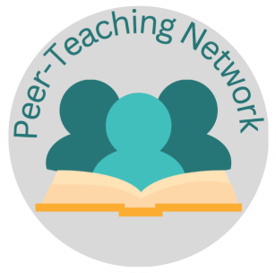Study Tips
You've probably done some research already...

...and saw that there's an overwhelming number of methods, but you're not sure which will be the most efficient, effective, and organised?
There's no one-size-fits-all in studying unfortunately, but we still have plenty of tips, from methods to try to avoiding common pitfalls - but the key?
Take a step back, and work out how you learn.
Not just one 'style', but the core of why that works for you - that way, you can expand with new methods, and find ways around ones that don't suit you so well.
Review the Learning to Learn video playlists we collected to help you!
Active recall is really effective; do the end of week quizzes, make Anki, or use question banks.
Engage your memory; review what you already know before starting a new topic.
Make a mind map of a new process, disease, or treatment to link all its parts together.
Draw anatomy out! Get a wipe board, use the iPad, or blank CAI book pages.

It's not about the number of hours you do...
...but what you do with them. More hours do not mean you're doing good, effective studying.
So if you're tired or distracted, you won't be effective, and it won't be worth it; sleep, get outside, watch a favourite show, and come back later. Set yourself limits!
Periodic breaks or changing tasks really helps - look into the Pomodoro technique.
Use and share other resources
YouTube videos are often much easier to digest than long chunks of text - students in upper years will often know of good (reliable) ones! - Rav
Take advantage of guilt-free rest
Allow yourself to breath, and tell your PT when things get tough. Easier said than done, I know. - Kaldora
New methods take time too...
If they're not working, you might not be using them right. Before you give up on them, learn how to use them effectivelyLink opens in a new window. Follow tutorials on YouTube, even better if made by other medics, and your time spent studying will be far more effective. - Emily
Cover the content in whatever way works for you
Which may not be listening to lectures, if auditory learning doesn't suit you. With your LO's ready, try answering them from reading the slides. Then read the Echo360 transcripts, searching for keywords to fill in the blanks.
And use other resources - read Gray's Anatomy for Students, watch a Crash Course video before or after, search 'free Osmosis cheat sheets'... just don't force yourself to learn in a way that doesn't work for you, just because it does for others. - Charlotte
See one, do one, TEACH one
Everyone has topics they're stronger on, so help each other out!
If you can explain tricky subjects in simple language, then you truly understand it - though you may find a new, easier approach too.
Organisation
- Make a realistic schedule; prioritise, and adapt if it's not working
- Include time for you - hobbies, socialising, proper rest (and full days off!)
-
Use a digital and/or a physical wall calendar
- Use the weekly checklists to help guide planning
- Know what time you focus best - trickier subjects are best tackled then
- Struggling with a topic? Take a break and return to it later, or try again through group study

Follow the LO's!
Not what you think is 'worth it', or even the slides - exam q's are based off LO's, so structuring your learning by them helps ensure you'll cover what they expect from you. If the answer isn't clear, ask that lecturer, your CBL, or find another resource. - Charlotte
Don’t compare yourself to others
You may hear people have done X amount of lectures or Anki cards already - try to ignore them!
Go at your own pace and don’t rush topics just for the sake of ‘getting them done’. - Jeremy
Don't be afraid to ask questions!
Prioritise the lectures that prepare for the workshops - they're a good opportunity to get help in person, so use them wisely. - Rav
There are many ways to study successfully!
You'll likely hear about a lot of different note-taking apps and new tech... not to mention Anki!
It can feel overwhelming, but if hand-writing key points or using the latest-and-greatest apps works best for you, know that there's no single method needed to pass! - Millie
For more study help...
Our Peer Teaching Network is full of enthusiastic Phase II students who want to help you learn this too!
- Student Sems, including Non-Science and Clinical Skills SocLink opens in a new window, can help you tackle the trickier bits
- Ask your Medic Family - aside from your parents, your siblings may have some great resources
- Check out the recommended 'Learning to Learn' YouTube playlists on the Pre-learning page
- Get in touch with the faculty member who taught the topic, or the Block or Theme lead


To Anki, to PassMed, to Notion, to Osmosis...
Prepping for your Welcome Week, we remembered how overwhelming the vast array of external resources gets, and still not knowing which to choose for ourselves, or how to use them best - and it's easy to spend far too much time trying to work that out and decide.
To help, we've compiled our insight on these resources into a new Guide on External Resources.
We'll update it with any input given, so please comment your experiences too!
For 2023 cohort, we've also just started to build a central one-stop Drive of shared resources
Our legacy master lists, Anki decks, Osmosis summaries, favourite mnemonics, hidden websites, and slides from Student Sems willing to contribute.
Access will be disseminated once you join us!
